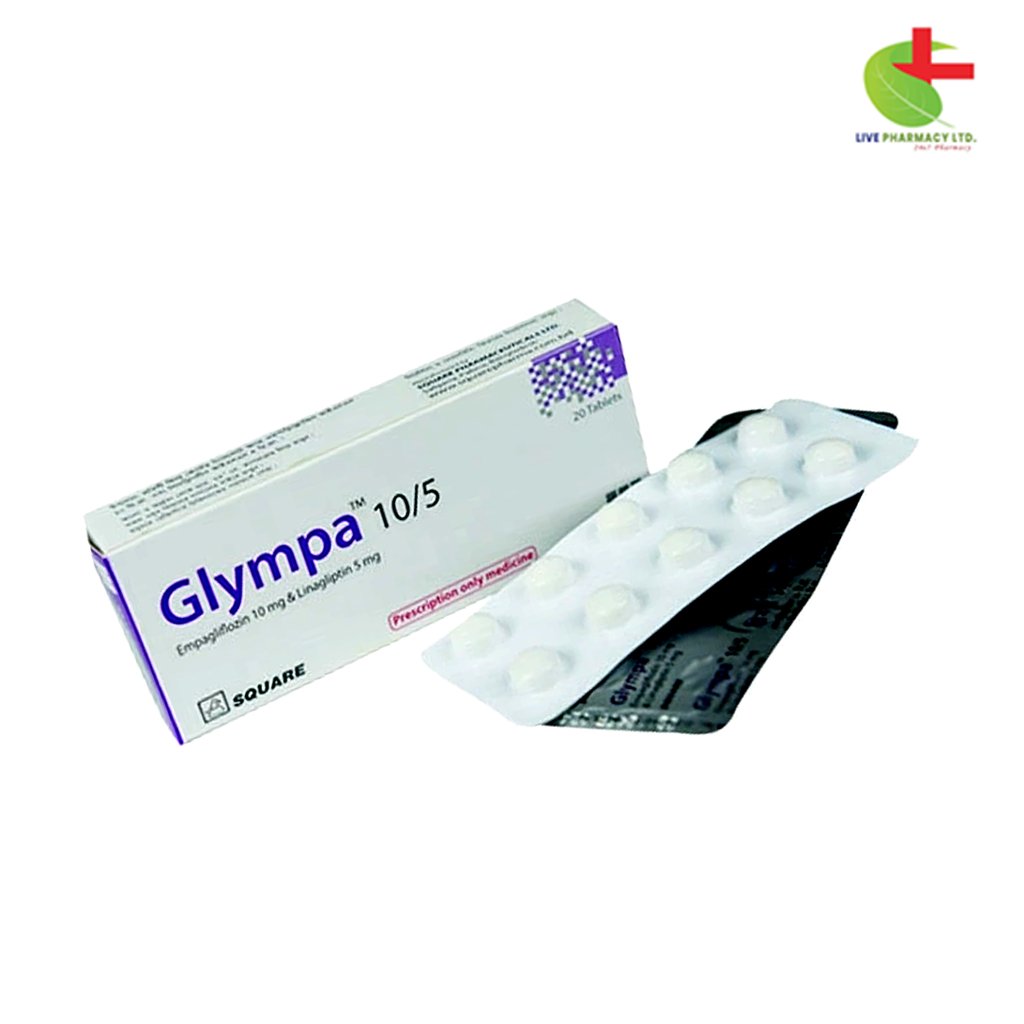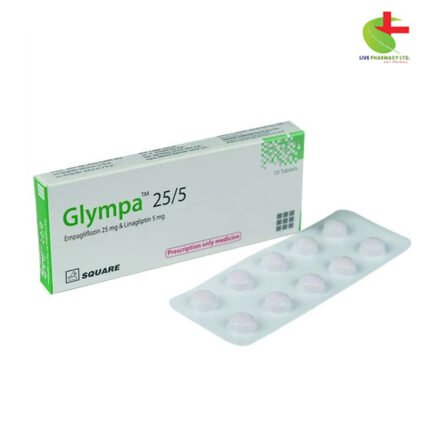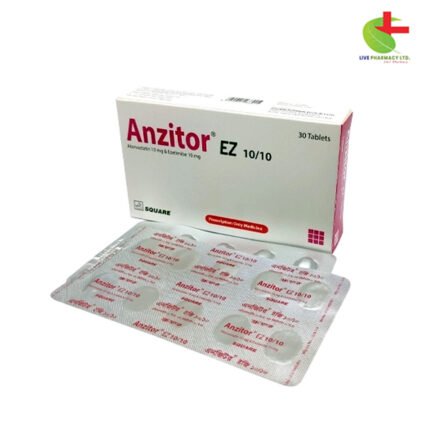Glympa 10/5
300.00৳ Strip
- Linagliptin is prescribed for adults with type 2 diabetes mellitus to improve blood sugar control.
- It inhibits the enzyme DPP-4, enhancing insulin release and reducing glucagon levels to regulate glucose.
- Administered once daily, it can be used alone or in combination with other diabetes medications.
- Commonly well-tolerated, side effects may include hypoglycemia; pancreatitis is rare.
 Brand
Brand
|
Square Pharmaceuticals PLC |
|---|---|
 Generics
Generics
|
Empagliflozin + Linagliptin |
 Type
Type
|
Tablet |
Indications
Linagliptin is used to manage type 2 diabetes mellitus and improve blood sugar control in adults. It can be prescribed as monotherapy for patients who do not respond adequately to diet and exercise alone and cannot take metformin due to intolerance or renal impairment. Additionally, it is used in combination with metformin, a sulphonylurea, or insulin when initial treatments fail to achieve sufficient blood sugar control.
Pharmacology
Empagliflozin inhibits the SGLT2 transporter, which reduces glucose reabsorption in the kidneys, leading to increased glucose excretion in urine.
Linagliptin inhibits DPP-4, an enzyme that degrades incretin hormones. By preserving these hormones, linagliptin enhances insulin release and suppresses glucagon secretion, promoting glucose regulation.
Dosage & Administration
The recommended dose of Linagliptin is 5mg once daily. It can be taken with or without food at any time of day. If a dose is missed, it should be taken as soon as remembered, without doubling up on doses in the same day.
Special Populations
For patients with renal impairment, no dosage adjustment is necessary. There is limited clinical experience with linagliptin in patients with hepatic impairment or elderly patients over 80 years old.
Interactions
Linagliptin has shown minimal interactions with other medications like metformin, sulphonylureas, and insulin, indicating a low risk for clinically significant interactions.
Contraindications
Linagliptin should not be used in individuals with hypersensitivity to the drug or its components.
Side Effects
Common side effects include hypoglycemia, particularly when used in combination with other diabetes medications. Pancreatitis has been reported rarely.
Pregnancy & Lactation
The safety of linagliptin during pregnancy and breastfeeding has not been established. Its use should be avoided during pregnancy unless the benefit outweighs the potential risk.
Precautions & Warnings
Patients should be monitored for signs of pancreatitis, hypotension, renal impairment, hypoglycemia, and infections. Regular monitoring of renal function is advised, especially in patients with impaired kidney function.
Overdose Effects
Overdose cases with linagliptin are rare; supportive measures should be initiated if overdose is suspected.
Storage Conditions
Store linagliptin below 30°C, protected from light and moisture, and out of reach of children.













Reviews
There are no reviews yet.